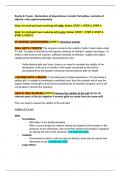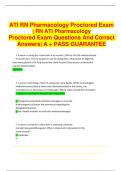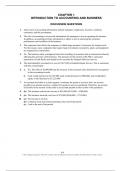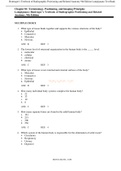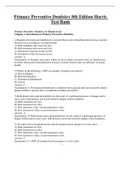Exam (elaborations)
Equity and Trusts - Declaration of Dispositions, Transfer Formalities, Certainty of Objects, Rules Against Perpetuity (Exam Plan)
- Module
- Institution
I scored 87% in Equity and Trusts and received a Distinction (74%) overall in the GDL at the University of Law using these notes. These notes are written in the form of step-by-step exam plans. Compared to standard notes, this will save you lots of time. Most people will make notes during worksh...
[Show more]
